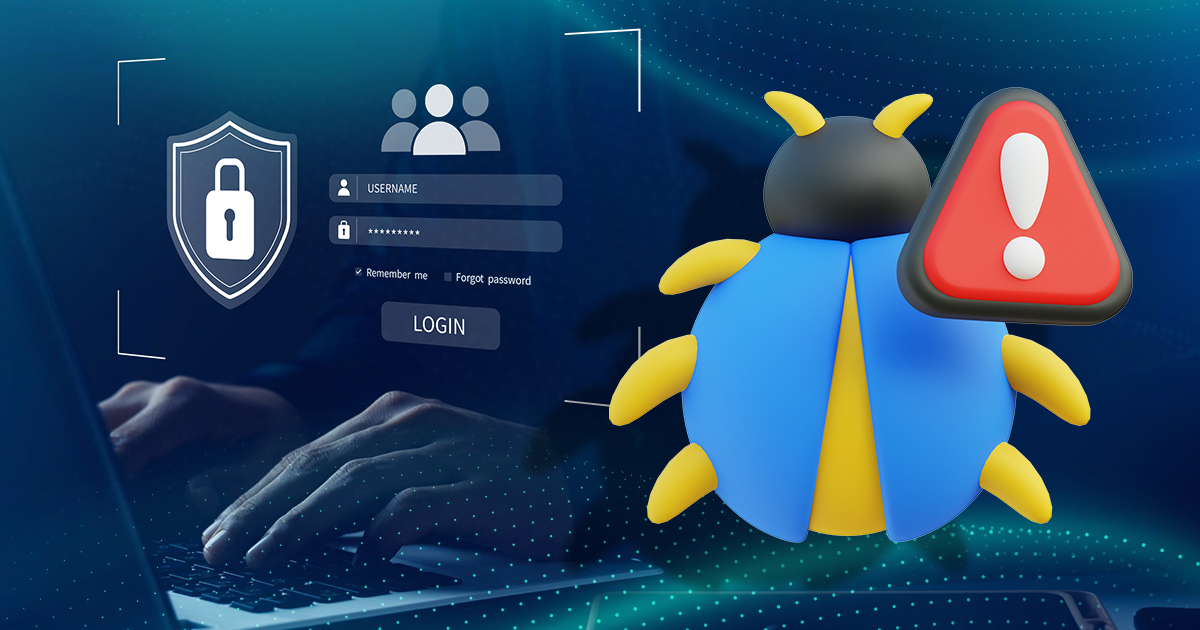Working in tech right now feels a bit like entering the Twilight Zone. It’s a slightly disturbing alternate reality.
The recent explosion of gen AI tools has made everything seem less predictable. Less stable. More…
Unusual.
The uncertainty is made worse by the breakneck pace of change. Building a tech career in the AI era feels a bit like a Catch-22…
AI lowers the barrier to entry, but raises the bar for growth.
It’s no good using AI tools to deliver faster, if the results are no different to the ones you delivered beforehand. It’s time to push the envelope and level-up your skills.
In this article, we’ll look at how tech careers are changing and what it means for the future. We’ll also explore the limitations of AI and how to take advantage of them.
How To Escape The Tech Catch-22
If you’re worried about AI replacing your job, you’re not alone. In 2023, Google searches for “AI taking jobs” surged by over 276%!
The truth is, nobody really knows how many tech jobs will disappear due to AI. One thing is for certain – many jobs will vanish, but others will emerge to replace them.
The uncertainty makes it hard to plan your career. It might be tempting to focus on developing deep tech skills like coding, machine learning, and fine-tuning AI models, but that isn’t the whole picture.
Yes, tech skills are part of the solution, so don’t neglect them. But specialized skills aren’t enough to survive the AI revolution.
In fact, more than 50% of tech roles at Google and Meta don’t require any coding skills these days.
AI is leveling the playing field and freeing us from a lot of the rote work that was a big part of the knowledge economy. Rote work are repetitive tasks that usually only rely on following instructions. These types of jobs will disappear first.
Many experts are saying that the knowledge economy is over or on the way out. In the new AI-driven economy, your value will depend less on what you know and more on how you:
- Think
- Adapt
- Connect dots across systems
- Relate to people and collaborate
- Solve problems
Ironically, the skills we previously viewed as “soft” are the hardest to replace with AI. Instead of just knowing how to use tech tools, it’ll be equally important to know what to use and when to use it.
Skills like creative thinking, problem solving, adaptability, strategic judgment, and empathy will be the main drivers of the next round of tech innovation.
You’ll still need to master the tools, but to really thrive, it’s best to understand how tech teams are changing and how you can contribute to this evolution.
How AI Is Reshaping Tech Roles
A pinch point is developing in many tech roles.
Nowhere is this truer than software development. Generative AI coding tools can already automate large chunks of the work once done by junior engineers, such as the following tasks.
- Writing boilerplate code
- Fixing bugs
- Repetitive or “learning phase” tasks
- Writing unit tests and test stubs
- Code documentation and inline comments
- Converting logic from one language or framework to another
Traditionally, junior engineers would join a team, tackle lower-level tasks and gradually grow into senior roles by learning on the job. Now, as AI handles many of those “learning phase” tasks (or at least makes them easier and faster), it means companies can’t justify hiring as many juniors as in previous years.
Some IT leaders are saying that as AI coding tools improve, software development teams could become tiny, with just a few core senior roles needed. C-grade and some B-grade developers will find themselves pushed out, with only A-grade performers left.
This causes a blockage in the pipeline, as nobody starts out as an A-grade developer. It’s likely that fewer junior developers will enter the profession. This makes it harder to nurture in-house talent to the point at which they’re ready for leadership roles.
The AI Flattening Effect
The problem of disappearing job roles isn’t restricted to junior devs. AI removes more than just the bottom rungs of the tech career ladder, with mid-level and senior roles at risk too.
A recent Gartner report suggests that AI is flattening org structures and predicts that 20% of tech middle managers will be gone by the end of 2026.
This is another blow for career progression. If the middle layer disappears, where do entry level professionals go? How will they learn to lead?
The answer is that self-direction will probably be the new normal. The days of long apprenticeships and gradual onboarding are fading. Instead of being closely monitored by senior staff, junior devs will be expected to:
- Learn independently using AI tools, online courses, and contributing to open-source projects
- Identify their own learning gaps
- Drive growth and personal development without so much structured guidance
- Document and share their leaning publicly though blogs, GitHub, and dev journals
Most startups and tech teams are looking for adaptable people who can wear multiple hats. Rather than just coding, you’ll need to understand full-stack skills and collaborate across departments, such as UX, marketing, data science, and product management.
In the past, junior devs might have spent 3 to 5 years purely coding before mentoring others. Now, even mid-level developers are expected to take on “player-coach” roles where they deliver their own work, while also mentoring interns and guiding project decisions with the help of AI tools.
Creativity – The New Tech Superpower
Let’s be clear, when we say creativity, we’re not talking about painting a mural in the breakroom or composing a symphony in your lunch hour!
At its core, creativity is problem solving.
It’s the ability to come up with useful and sometimes surprising solutions. In tech, that might mean finding a clever way to fix a bug or designing a better user experience. It’s all about creating new things that didn’t exist before, such as products, systems, or operations.
Success in tech depends on figuring out what to build and how to build it better. AI can generate code or analyze data, but it doesn’t know if the thing it’s building actually makes a difference to a real person. That’s where human creativity comes in, as we’re much better at connecting dots that don’t obviously go together and spotting needs no one else has noticed yet.
As we move from the knowledge economy to the creativity economy, we don’t win by being more efficient anymore. We win by being more original.
But how do you “be more original”? It’s mostly about staying curious. When you join a new team, most people are conditioned to ‘the way things have always been done.’ Don’t be afraid to shake things up and ask questions like, ‘Why does it work that way?’ or ‘What if we tried X instead?’
Keeping a ‘curiosity journal’ helps too, where you write down things that confuse or interest you. Just the simple act of writing down your thoughts and observations will spark new ideas. Speak to people outside your bubble and write down the kind of things they talk about and the problems they’re facing. Developing empathy skills like this will really help you to relate to their pain points and come up with better solutions.
Treat AI Like A Tutor, Not A Vending Machine
If you’re just letting ChatGPT or Claude spit out code and pasting it straight into your IDE, you’re not really learning. You’re shortcutting. That might work for quick fixes, but long-term it’ll bite you.
A better approach is to use AI intentionally. For example, if you’re a junior developer working on a feature, and don’t know how to write a certain function the old way meant using a combo of Google, Stack Overflow, and trial and error.
The new way is to prompt an AI tool like GitHub Copilot or ChatGPT. But don’t stop there. Use AI as a learning accelerator, rather than a crutch.
- First, study how AI solves the problem. What patterns does it use? What assumptions is it making? Ask follow up questions to find out its reasoning.
- Second, ask “Why did it choose this?” or “What would happen if I changed X?”
- Third, try prompting a different way to compare multiple approaches. Don’t trust the AI output, even if it all looks okay at first glance. Apply smart curiosity to every bit of code it generates.
- Finally, make sure you fully understand the output and why it works before moving on. Gaining this kind of understanding will accelerate your career and help you progress to higher decision-making levels.
Using AI in this way is a mindset shift from the way most people use it. Most people use AI to go faster, but you’re using it to go deeper (and faster!).
“Signal” Says More Than A Résumé
The tech hiring game has changed. Companies are more cautious and want to see more than just a résumé. They want to see the “signal”.
“Signal” is proof that you can think creatively, then design, build, and ship something useful. They don’t want people who passively follow tickets on a team, they want to see evidence of creative thinking.
It doesn’t have to be something huge. Build something small like a Chrome extension or publish a micro-app on Vercel. A useful custom GPT will impress employers these days too.
If you’re feeling adventurous, contributing to a cool open-source repo looks great, especially if you log what you’re learning as you go along. You can then write up some articles about it and publish them on Medium or an industry publication to increase your public profile.
Writing publicly about your thought process is a valuable skill these days. It shows you’re creative, reflective, articulate, and capable of explaining complexity, which are all skills AI struggles to replicate well.
To further AI-proof your tech career, it might pay off to niche down into areas that are harder for AI to automate, such as cybersecurity, accessibility, or dev tools that need deep human judgment.
Here are a few ideas of tech areas that might be more AI-proof than others.
- Security-focused tooling
- Tools that explain or teach concepts
- Apps that serve real communities or underserved users
- Ethical AI and bias auditing
- Human-centered UX and accessibility
- Regulatory tech (RegTech) and compliance tools
- Developer experience (DevEx) tools
- High stakes industries like health, education, government, climate, etc.
Escape The Catch-22 By Making Yourself Irreplaceable
The AI wave isn’t going to slow down. Tools will continue to evolve, and tech roles will change. And yes, some jobs might disappear altogether. But others will emerge.
Don’t worry too much though. Humans aren’t going anywhere.
The future is all about people.
Building a successful career in tech will come down to how well you serve people, work with other people, and adapt to the needs of people.
You can’t wait for people to hand you a career ladder anymore. You’re going to have to climb the structure yourself. With the help of AI, of course!




